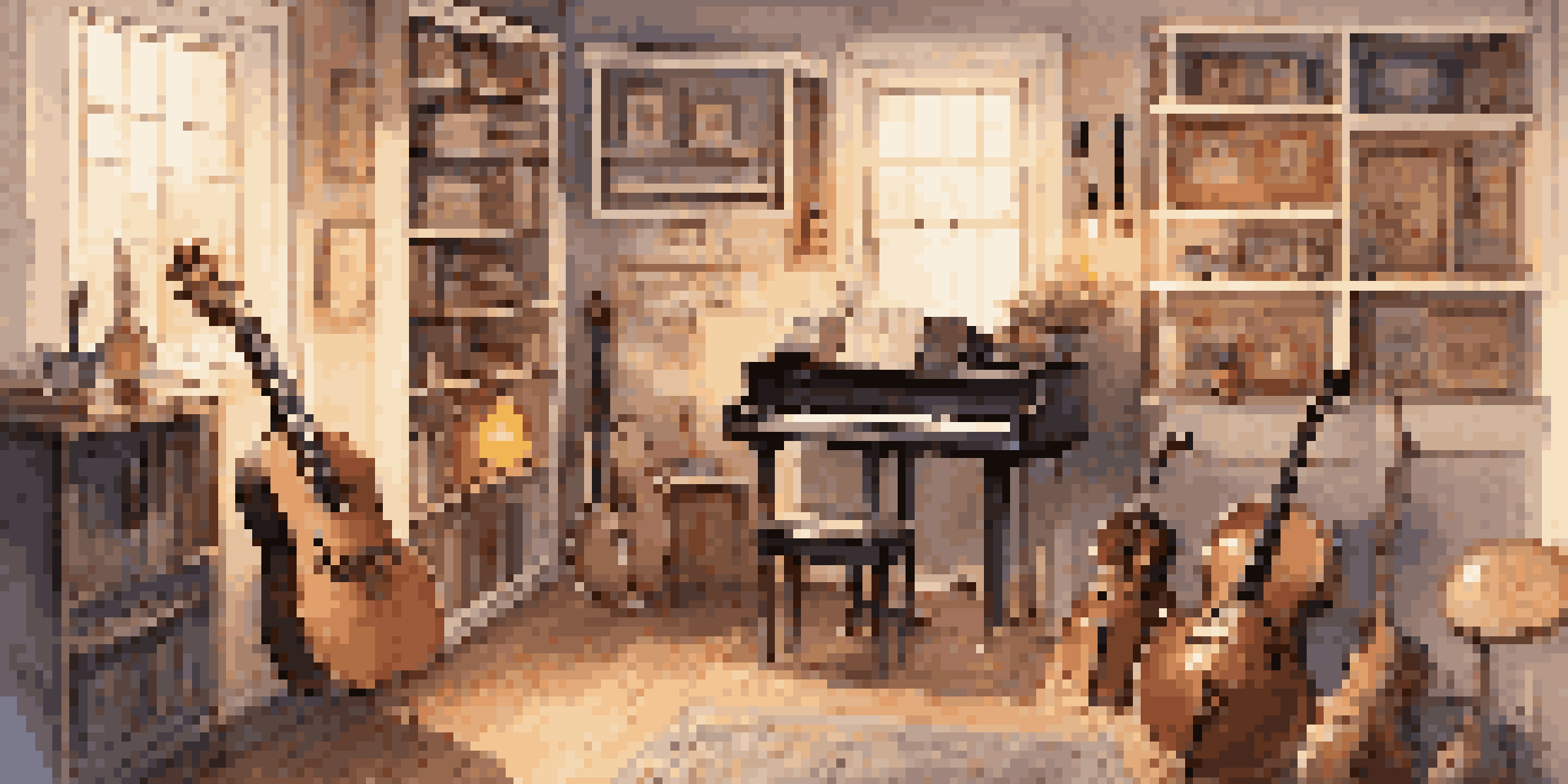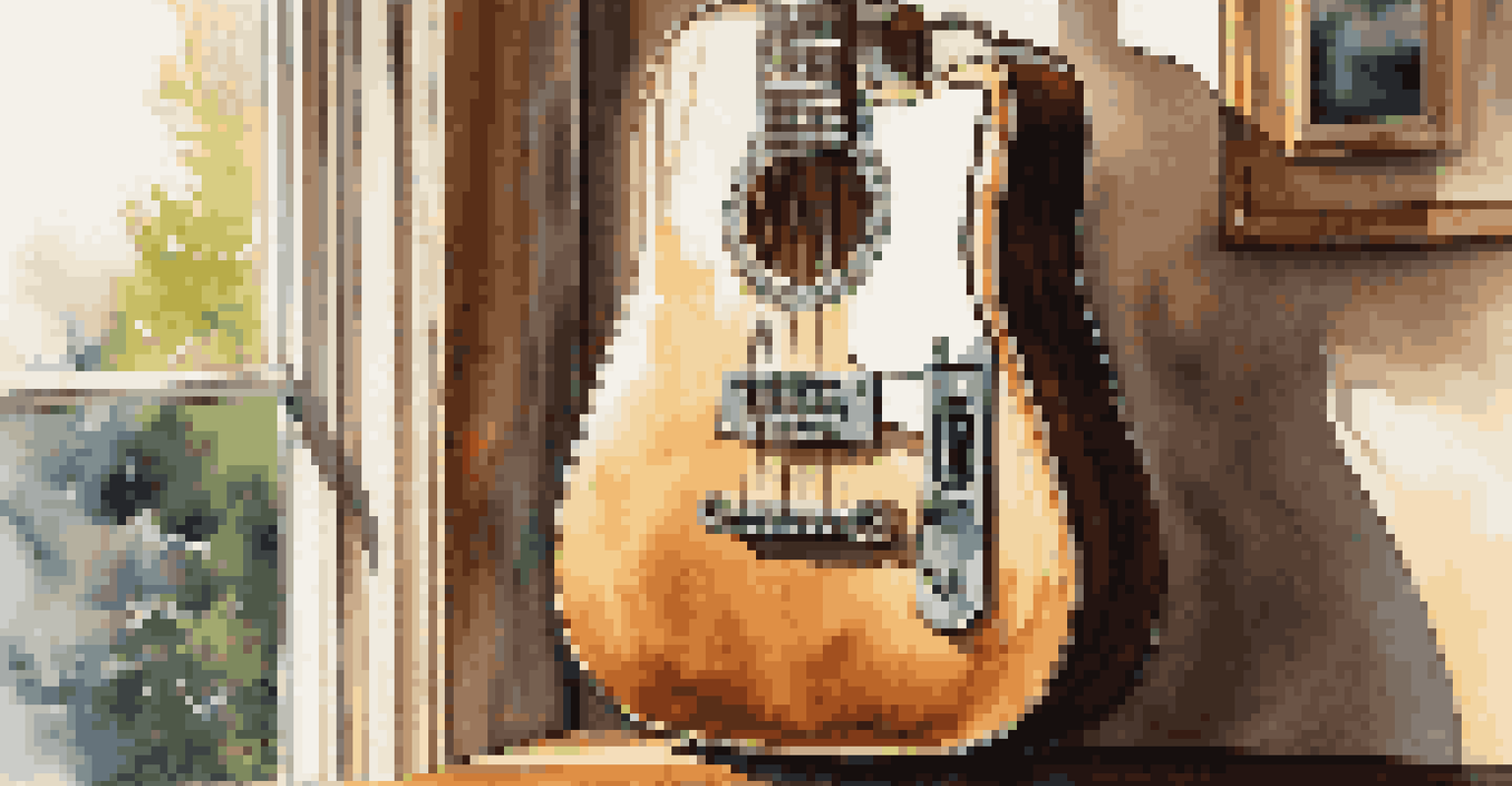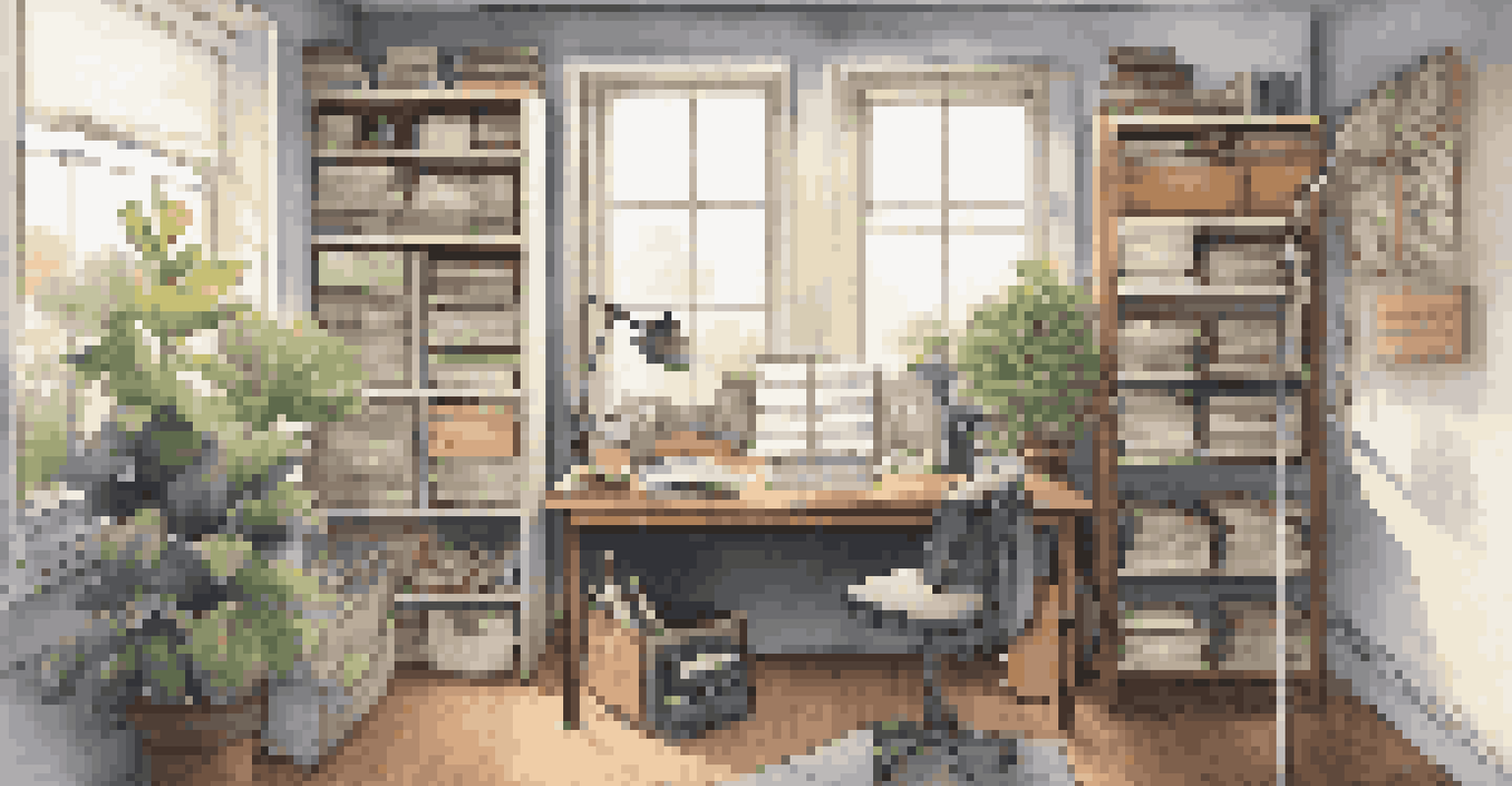How to Organize Your Home's Musical Instruments

Assess Your Musical Instrument Collection First
Before diving into organization, take a step back and assess your musical instruments. Gather all your instruments in one room to get a clear idea of what you have. This will help you decide which pieces are essential, which ones you might want to donate, and what's worth keeping.
Music is the shorthand of emotion.
As you examine your collection, consider the condition of each instrument. Are any in need of repairs? If so, you can set aside a budget or plan for maintenance. This assessment phase is crucial for understanding your needs, so don’t rush it.
Finally, make a list of your instruments, categorizing them by type—guitars, pianos, wind instruments, etc. This will serve as a roadmap for your organization efforts, helping you visualize how much space you’ll need and which storage solutions will work best.
Choose the Right Storage Solutions
Once you know what you have, it’s time to select storage solutions that fit your space and lifestyle. Consider using shelves, cabinets, or dedicated instrument cases that not only protect your instruments but also keep them accessible. Each type of instrument may require different storage, so find solutions that suit your collection.

For example, guitars can hang on wall-mounted hooks, while wind instruments might benefit from a padded case or a stand. If you have a larger collection, think about investing in a dedicated storage unit or furniture that blends with your home decor.
Assess Your Instruments First
Gather all your musical instruments to evaluate their condition and decide which to keep, donate, or repair.
Remember, the best storage solutions are not just functional but also visually appealing. You want your musical space to inspire creativity, so choose options that make your instruments a focal point rather than an eyesore.
Create a Designated Music Space
Having a specific area for your musical instruments can significantly enhance your organization efforts. Designate a corner of your living room, a spare room, or even a section of your garage as your music zone. This keeps everything in one place and makes it easier to grab your instrument when inspiration strikes.
The beautiful thing about learning is that no one can take it away from you.
In this space, consider adding a comfortable chair, good lighting, and perhaps even some soundproofing if you plan on playing frequently. A designated area will not only improve organization but also encourage you to play more often.
Don’t forget to personalize your music space! Add shelves for sheet music, a small table for accessories, and even some decor that reflects your musical taste. This way, your space becomes a true reflection of your passion for music.
Implement a Regular Maintenance Schedule
To keep your instruments in top shape, it's essential to implement a regular maintenance schedule. This means cleaning, tuning, and checking for any necessary repairs. Just like a car needs regular oil changes, your instruments benefit from consistent care.
Create a checklist that outlines when each instrument should be maintained. For example, guitars may need tuning before every session, while pianos might require tuning every few months. This proactive approach not only prolongs the life of your instruments but also ensures you’re always ready to play.
Create a Dedicated Music Space
Designate a specific area for your musical instruments that encourages creativity and makes it easy to play.
Additionally, consider setting reminders on your phone or calendar to help you stay on track. By making maintenance a routine part of your musical life, you'll avoid last-minute scrambles to get your instruments ready for practice or performances.
Organize Accessories and Sheet Music Too
Don’t forget that musical accessories and sheet music can quickly clutter your space! Create a designated area for items like picks, tuners, and cleaning supplies. Use small bins or drawer organizers to keep everything tidy and easy to find.
For sheet music, consider a filing system that categorizes by genre or instrument. This way, when you need a particular piece, you can locate it quickly without sifting through piles. You might also want to digitize your music collection for easy access and storage.
Having an organized system for accessories and sheet music not only enhances the overall aesthetics of your music space but also boosts your productivity. You'll spend less time searching for items and more time enjoying your music!
Involve Family Members in the Process
Organizing your musical instruments can be a fun family project. Involve your kids or other family members by asking them to help categorize and arrange the instruments. This not only lightens your workload but also fosters a shared appreciation for music.
As you work together, take the opportunity to teach younger family members about each instrument. This can spark their interest in learning an instrument themselves and help them feel more connected to the music you create as a family.
Involve Family in Organizing
Engaging family members in the organization process fosters appreciation for music and encourages everyone to maintain the space.
By making organization a group effort, you create a sense of ownership among family members. Everyone will be more likely to respect the space and keep it tidy, making your music area a cherished part of your home.
Enjoy and Evolve Your Music Space Over Time
Once you've organized your instruments and created a dedicated space, remember that it's okay for things to evolve over time. Your musical interests may change, or you might acquire new instruments that require a different setup. Stay flexible and open to rearranging your space as needed.
Consider seasonal clean-ups where you reassess your organization. This could be a time to donate instruments you no longer play or to upgrade your storage solutions based on your current needs. Keeping your space fresh will encourage you to continue pursuing your passion for music.

Ultimately, the goal is to create a space that inspires you to play and enjoy music. So, whether you’re jamming with friends or practicing solo, make sure your organized music space reflects your journey as a musician.